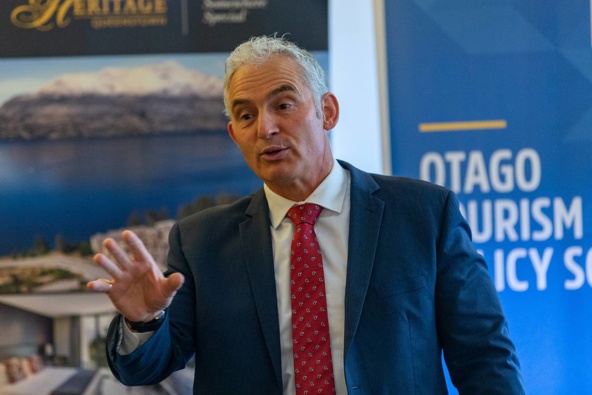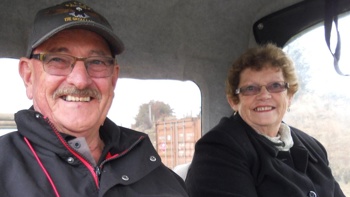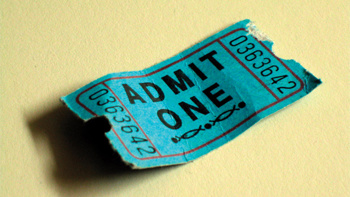Follow
the podcast on

Tourism Minister Stuart Nash is promising targeted support for struggling tourism businesses but with a warning - the old model is unsustainable and has to go.
In a speech this morning in Queenstown, Nash unveiled some details of what that support might be, adding that it will likely target specific regions - the West Coast of the South Island, Queenstown, Fiordland, Aoraki Mt Cook, Kaikōura.
He later told media that proposals for support, yet to be signed off by Cabinet, included working capital to help tourism businesses come out of hibernation when international visitors returned to New Zealand, business advice and funding to implement that advice, a fund to help regions diversify tourism-centric economies, and mental health support.
He added that he had no intention of capping the number of international tourists, but wanted to see higher prices for them than for locals, which is already in place for accommodation on the Great Walks.
That could include entry fees to national parks and conservation areas for foreign visitors, but not Kiwis.
And he wanted to see changes to the international tourist levy, which is currently $35.
"It excludes Australians. We're missing a trick here. Australians charge Kiwis. Why shouldn't we charge Australians? There's work being done on this and no decisions have been made."
Nash added that the Government was working on a way to allow local authorities to implement a bed tax, which Queenstown is very keen on, if they chose.
"The goal is to ensure that when people come to New Zealand, they spend money in a way that adds to their experience but also adds value to our communities."
He said a trans-Tasman travel bubble, which the industry is desperate for, was likely to open this year, while the borders to the rest of the world would likely reopen in 2022.
But when the tap turned back on for international visitors, a new tourism model was needed.
"It can't go back to how it was. It is unsustainable, it lacks resilience ... The world has been changed by Covid-19, and so we must change with it," Nash said in his speech.
"In a number of places, the industry was beginning to erode its social licence to operate, and therefore lose the community's support for continued growth of the sort we were seeing.
"Perhaps we had also passed the tipping point, in some key iconic spots, of not delivering on our global brand of '100% Pure'."
Queenstown in particular had struggled to keep control of issues that mass tourism had brought such as traffic congestion, accommodation prices, road accidents and staff shortages.
"The November 2019 'Mood of the Nation' research done for the tourism industry found that 78 per cent of residents here were more likely to think there was too much pressure from international visitors," Nash said.
Research for Tourism NZ showed that New Zealand faced a revenue gap of $12.9 billion a year without international visitors.
Domestic tourism spend was up 24 per cent to $1.17b in January of this year compared to January 2020, but total visitor spend fell 11 per cent overall.
The Government has already put $400 million towards tourism recovery, which included $299m in cash grants and loans for 130 businesses and $20.2m for New Zealand's 31 Regional Tourism Organisations.
Nash promised more help was coming, but ruled out regional wage subsidies or Strategic Tourism Assets Protection Programme grants or loans.
The help would target the regions most heavily reliant on international tourism, he said.
The Government will also support tourism workers into conservation or infrastructure jobs, he added.
"We won't leave our worst affected communities behind."
He repeated aspects of the vision he outlined at the end of last year including an overhaul of freedom camping, changes to the international visitor levy to ease the financial burden on the local communities they visit, and partnerships with business, workers and Māori focused on productivity and sustainability.
A discussion document on freedom camping was due shortly, he said.
"People travelling around, sleeping in non-contained vehicles are not part of our global value proposition, not part of our brand, they do not represent the values we hold as a country, and I don't think they add much value."
National Party tourism spokesman Todd McClay said Nash should have shown up with something more concrete.
"National has been calling for targeted support for months. Mr Nash should have used his Queenstown trip to announce a support package for hard hit tourism businesses until a travel bubble with Australia opens.
"The lack of any plan from the Government will mean further jobs will be lost in a sector that's already struggling."
Earlier this week, National Party leader Judith Collins said that the death of Queenstown would be on the Prime Minister's hands if Jacinda Ardern didn't open a quarantine-free trans-Tasman bubble.
Cabinet is expected to consider a starting date for the bubble on Monday, but Ardern said yesterday that she didn't want to give a timeline until a date was firmed up.
A protest was planned to greet Nash in Queenstown this morning, but it was scrapped after news articles appeared saying that Cabinet would consider the trans-Tasman bubble on Monday.
text by Derek Cheng, NZ Herald
Take your Radio, Podcasts and Music with you









